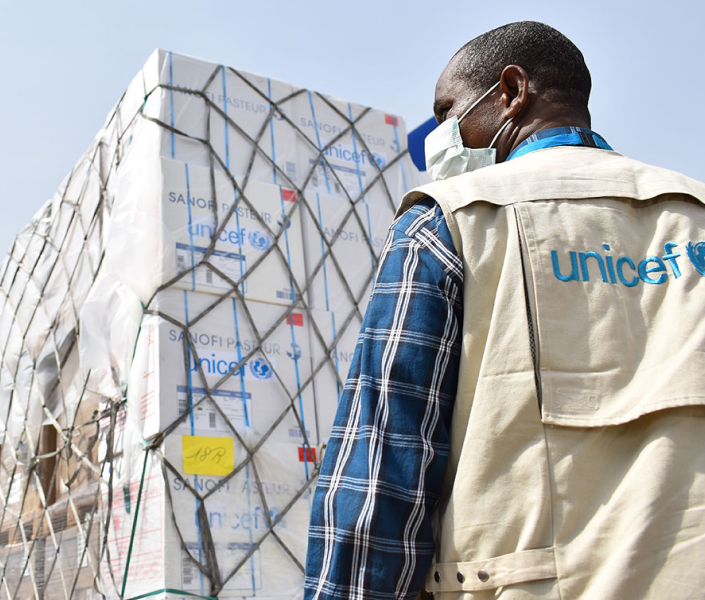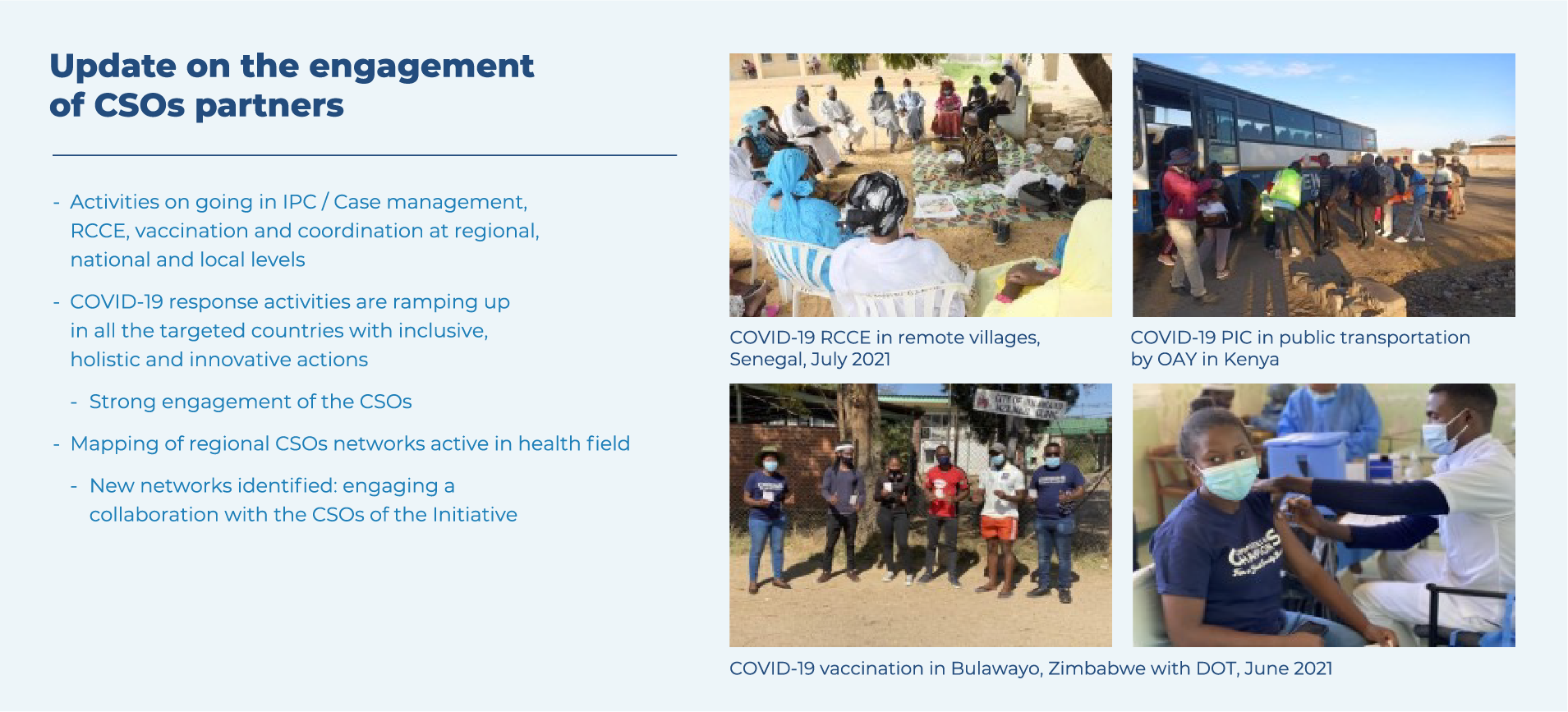Progress report African region 21 - 3. WHO-AFR and partners

From the start, WHO has been at the forefront of the battle against COVID-19. Over the reporting period, when numbers across the continent appeared under control, engaging with partners to consolidate gains was key, by prepositioning medical supplies and equipment, and building capacity in health care delivery and administration.
WHO-AFR works with five levels of partners: governments, regional economic bodies, United Nations and Bretton Woods agencies, funds and programmes and institutions, bilateral and multilateral donors, and non-State actors such as universities, civil society organizations and the private sector. Taking part in key multistakeholder decision-making platforms, the Organization intensified its advice to countries on critical preparedness, readiness and response actions for COVID-19, surveillance, and case investigation. For example, our team partnered with ministries of health and national public health institutes in a continuous data analysis and management exercise to inform policy.
WHO-AFR coordinated with sister agencies of the United Nations system, Africa CDC, the African Union, Gavi, the Vaccine Alliance, the African Development Bank, the World Bank and the Global Fund, bilateral agencies, and the private sector in most countries, improving access to infection prevention and treatment supplies – such as oxygen for respirators – along with access to, and capacity for testing. Of crucial importance, WHO advocated for – and secured – a strong commitment by the world’s top economies to timely vaccine distribution in Africa, especially for countries with chronically fragile health systems, and where clinical capacity may fall short of new virus variants.
Our relationship with civil society organizations (CSOs) received an added boost since the beginning of the year. Starting with regional monthly partners’ calls led by WHO-AFR, 23 CSOs from 12 countries as of July joined the Initiative for the Afro Zone (IAZ) designed to: Engage, Enable and Empower (3E) to respond to health emergencies. Coordinated by WHO AFRO, in close collaboration with WHO country offices (WCO) and key partners (ministries of health), this initiative aims to increase access to health information for people in urban and rural areas, youth, the most vulnerable populations (such as IDPs), and communities. It pursues three modalities: direct implementation through WCOs in Senegal, and Algeria; direct implementation through regional networks of CSOs such as AFRIYAN (African Youth and Adolescent Network): Kenya (OAY), Zimbabwe (DOT), REPONGAC (Regional network of active NGOs for Central African Countries) in DRC, Gabon, Cameroon, CADMEF (Association of Deans of Faculties of Medicine of African French Speaking Countries), in Côte d’Ivoire, Mali, and direct implementation through national and local CSOs.

“The year 2021 has been a difficult year for the entire world. No country has been spared by the COVID-19 pandemic – health-wise as well as economically. Across the world thousands of people have died and many countries are still struggling. The EU is convinced that we can only overcome this tragedy through a sincere spirit of solidarity. This is why the EU and its Member States decided on the onset of the pandemic to join forces under a “Team Europe” approach and combat the pandemic through joint global action.
As the EU is a staunch supporter of multilateralism, we did not hesitate to join hands with the World Health Organization (WHO), first to offer an international coordinated response through the global vaccination scheme COVAX and second to mobilise fresh resources to support governments’ COVID-19 response in lower income countries by strengthening their national health systems and countering the socio-economic impact of the pandemic.
In Botswana, Team Europe has partnered with WHO through a 13 Million BWP support to the Ministry of Health and Wellness COVID-19 surveillance and the Public Health Emergency Response by training health workers and Emergency Response Teams and by the provision of logistical support and supplies. This includes also support for the roll-out of the vaccination campaign. This support is part of a larger EU humanitarian package of almost 900 million BWP financed by our humanitarian office ECHO for countries in Southern Africa.
You can count on Team Europe for continued support and partnership.”




